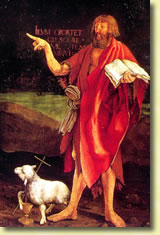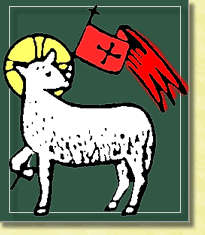I preached this sermon a few years ago, and it was on my old website. With Lent upon us, I thought people might find it helpful again.
 Lent is a time of the Church year that is dedicated to repentance, to dying to self. During these six weeks, we enter a period of self-examination, of humility, of repentance, of “acknowledg[ing] and bewail[ing] our manifold sins and wickedness.” Rather than affirming out choices, Lent seems to be about denying our choices. You do not have to be a genius to realize that this message of self-denial is out of touch with the values of our society. The message of the beer commercials and of most of the television shows on my television set is not one of self-denial, but of self-affirmation. The “swimsuit” edition of Sports Illustrated, which I did not notice in the grocery aisle last week, was not telling me to hold back. Even within the Christian churches, the message of self-affirmation has (broadly speaking) replaced the message of self-denial. More than ten years after Jim Baker and Jimmy Swaggart, there are still some TV evangelists who preach that God wants you to be rich or healthy or successful. If you’re not, it must be because you don’t have enough faith. On a less crass level, there are theologians, bishops and pastors within the Episcopal Church, the Roman Catholic Church, and the mainline Protestant churches who affirm that the self should be valued, not denied.
Lent is a time of the Church year that is dedicated to repentance, to dying to self. During these six weeks, we enter a period of self-examination, of humility, of repentance, of “acknowledg[ing] and bewail[ing] our manifold sins and wickedness.” Rather than affirming out choices, Lent seems to be about denying our choices. You do not have to be a genius to realize that this message of self-denial is out of touch with the values of our society. The message of the beer commercials and of most of the television shows on my television set is not one of self-denial, but of self-affirmation. The “swimsuit” edition of Sports Illustrated, which I did not notice in the grocery aisle last week, was not telling me to hold back. Even within the Christian churches, the message of self-affirmation has (broadly speaking) replaced the message of self-denial. More than ten years after Jim Baker and Jimmy Swaggart, there are still some TV evangelists who preach that God wants you to be rich or healthy or successful. If you’re not, it must be because you don’t have enough faith. On a less crass level, there are theologians, bishops and pastors within the Episcopal Church, the Roman Catholic Church, and the mainline Protestant churches who affirm that the self should be valued, not denied.








